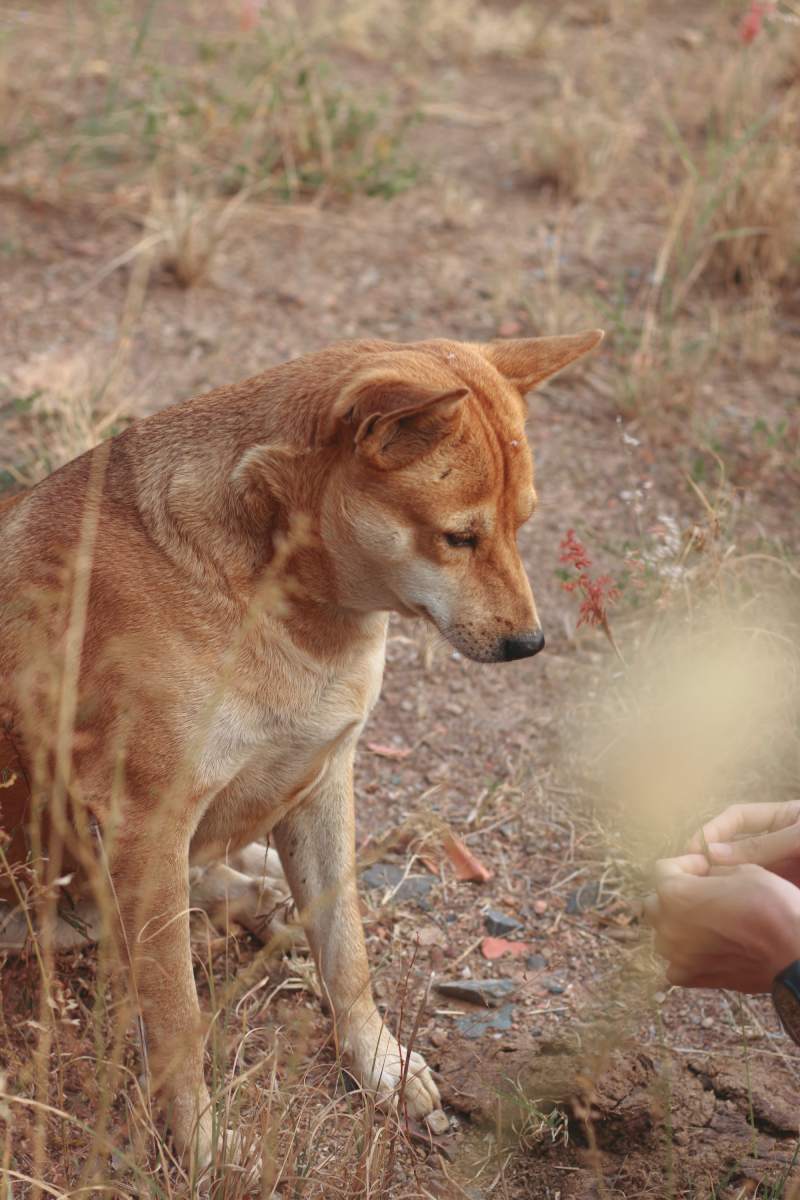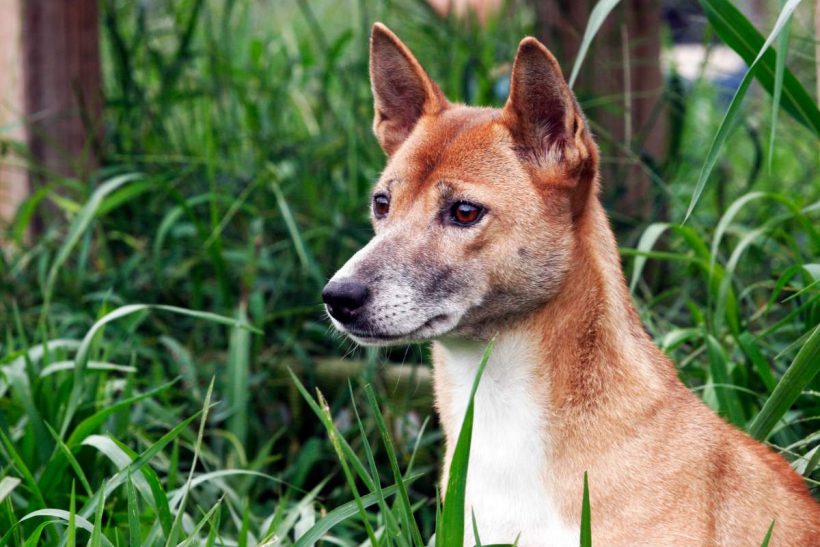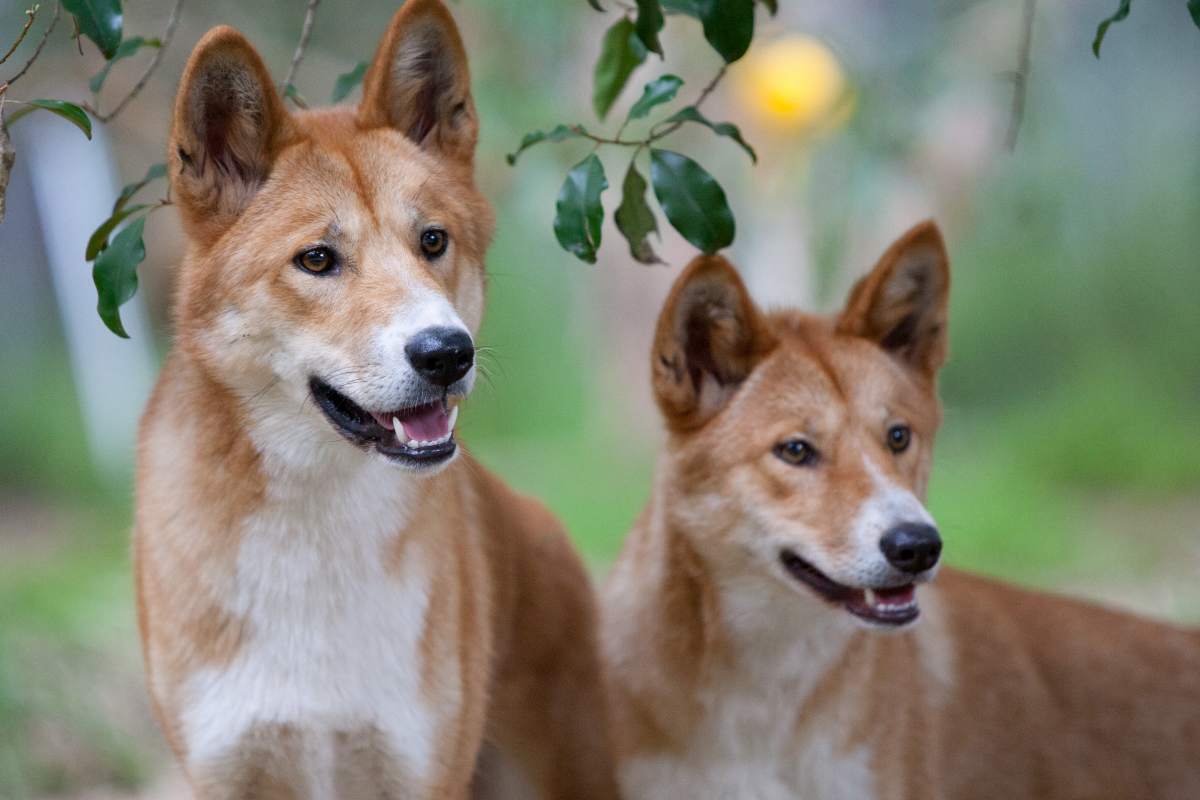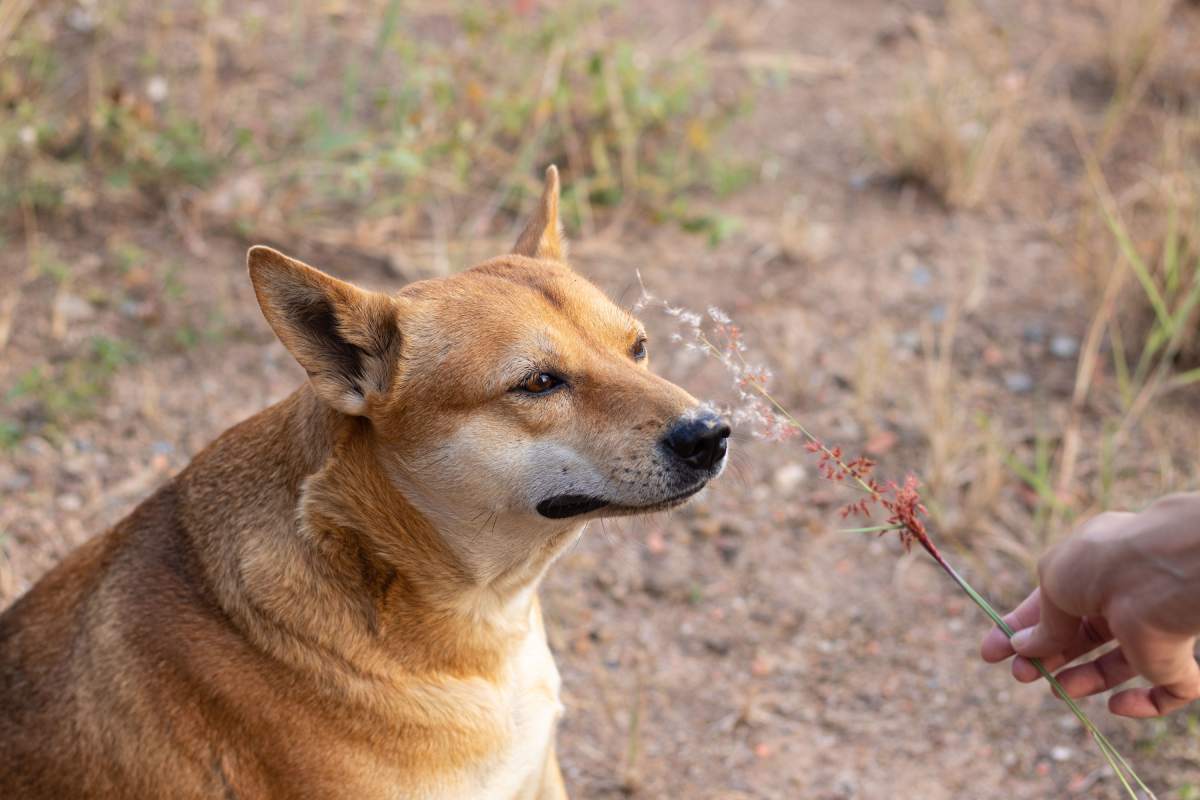Dingoes are wild dogs native to Australia, and they can be quite elusive. They’ve gained a negative reputation partly because of a famous incident in the 1980s involving Lindy Chamberlain. A dingo reportedly took a baby from a tent while the baby was sleeping. There have also been other cases where dingoes acted aggressively toward humans, but such incidents are rare.
Although dingoes may look similar to domestic dogs, they’re not typically recommended as pets. We’ll explore why owning a dingo can be complex and why it might not be the best idea. We’ll also discuss where it is legal and illegal to keep a dingo as a pet.
Can You Keep a Dingo as a Pet?
If you’ve ever wondered about keeping a dingo as a pet, you’re not alone. Dingoes are fascinating animals, native to Australia, and known for their wild and somewhat mysterious nature. But is it really a good idea to keep one as a pet?
What is a Dingo?
Dingoes are wild canines that resemble domestic dogs but have distinct differences. They are typically sandy or reddish-brown in colour with a white-tipped tail and pointed ears. Unlike domesticated dogs, dingoes are more elusive and have a strong hunting instinct. They live in the wild in Australia, thriving in various environments from deserts to forests.
Legal Considerations
The first thing to check if you’re thinking about keeping a dingo is the legality. In Australia, owning a dingo as a pet is subject to strict regulations. Each state and territory has its own laws regarding the ownership of dingoes, often requiring special permits. For example, in New South Wales, you need a permit and must demonstrate that you can meet the animal’s needs. It’s crucial to research and comply with local laws before considering a dingo as a pet.
Behaviour and Socialisation
Dingoes are not domesticated animals. They retain many wild instincts, including hunting and territorial behaviour. Unlike domestic dogs, dingoes can be quite aloof and less responsive to training. They are also more likely to be aggressive if they feel threatened or cornered. This makes it challenging for them to socialise and train compared to typical pets.
Socialisation with humans can be difficult, and dingoes might not be as affectionate or obedient as domestic dogs. Their strong prey drive means they might not get along well with other pets, particularly smaller animals. If you’re looking for a loyal companion, a dingo might not be the best choice.
Space and Environment
Dingoes need ample space to roam and exercise. They are used to covering large areas in the wild, so a small yard or apartment isn’t suitable for them. Ideally, they need a large, secure enclosure where they can express their natural behaviours. Without enough space, dingoes can become stressed and potentially destructive.
Diet and Care
Dingoes have specific dietary needs that can be challenging to meet. In the wild, they eat a varied diet that includes meat, fruits, and insects. In captivity, providing a balanced diet that mimics their natural food can be complex and costly. You’ll need to be prepared to provide high-quality food and supplements to keep them healthy.
Ethical Considerations
Keeping a dingo as a pet raises ethical questions. Dingoes are wild animals with complex needs that are difficult to meet in a domestic setting. Wild animals belong in the wild, and keeping them as pets can lead to stress and behavioural problems. There are also concerns about the impact on local ecosystems if dingoes escape or are released into the wild.
Where Can You Adopt a Dingo?

- Dingo Discovery Sanctuary: Located in Victoria, the Dingo Discovery Sanctuary provides education and care for dingoes. They often have dingoes available for adoption or fostering, but it’s essential to understand their specific requirements and the responsibilities involved.
- Australian Dingo Foundation: This organisation works on the conservation and rehabilitation of dingoes. They may have information on adoption or fostering and can provide guidance on responsible dingo care.
- Wildlife Sanctuaries and Rescue Organisations: Some wildlife sanctuaries and rescue organisations across Australia may have dingoes available for adoption. These organisations focus on the care and rehabilitation of wild animals and can offer insights into the challenges of keeping a dingo as a pet.
- Local Animal Shelters and Rescues: Occasionally, dingoes or dingo hybrids may end up in local animal shelters or rescue groups. It’s worth contacting these organisations to inquire about the availability of dingoes and the adoption process.
Before adopting a dingo, ensure you thoroughly understand their needs, including their space requirements, diet, and legal obligations. Many organisations will require a detailed assessment of your ability to meet these needs and may have specific criteria for adoption.
Keeping Dingoes as Pets in Australia: What You Need to Know
Dingoes are intriguing animals native to Australia, and while they can be fascinating as pets, the laws around keeping them vary significantly across the country. Understanding these regulations is crucial if you’re considering adopting a dingo. Here’s a breakdown of the Australian states where you can keep a pet dingo and the requirements involved.
States Where No Permit is Required
In some Australian states, you can keep a dingo as a pet without needing a special permit. These states are:
- New South Wales (NSW): In NSW, there’s no specific permit required to own a dingo as a pet. However, it’s essential to follow general animal welfare laws and ensure you meet the needs of the dingo, including providing adequate space and a suitable diet.
- Western Australia (WA): Like NSW, Western Australia doesn’t require a special permit to keep a dingo. Nonetheless, responsible ownership is key. Dingoes have specific needs that must be met to ensure their well-being, so even without a permit, prospective owners should be well-prepared to provide proper care.
States Where a Permit is Required
In other states, keeping a dingo as a pet involves obtaining a permit. These states have more stringent regulations to ensure that the needs of the dingo and public safety are addressed:
- Victoria: In Victoria, you need a permit to keep a dingo. The process involves demonstrating that you can meet the dingo’s needs and adhere to animal welfare standards. It’s important to familiarise yourself with the specific requirements of the permit to ensure you’re compliant.
- Northern Territory: Similar to Victoria, the Northern Territory requires a permit to own a dingo. The application process will require you to prove that you have the capacity to provide proper care and a suitable living environment for the dingo.
States Where Keeping a Pet Dingo is Illegal
In some Australian states, keeping a dingo as a pet is outright illegal. These states have strict regulations to protect both the animals and the public:
- Queensland: In Queensland, it’s illegal to keep a dingo as a pet. This law is in place to prevent issues related to the wild nature of dingoes and to ensure both the animals and the community are safe.
- Tasmania: Tasmania also prohibits the keeping of dingoes as pets. The regulations are designed to prevent potential risks and ensure that wild animals are not kept in inappropriate conditions.
- South Australia: In South Australia, it’s illegal to own a dingo as a pet. The focus here is on maintaining the safety and well-being of both the dingo and the local community.
Final Thought on Adopting A Dingo
Dingoes can be loving and loyal companions if they’re properly cared for. However, taking care of a pet dingo is more challenging than caring for a regular dog. It’s time-consuming, costly, and requires more effort. Because of this, many people end up giving up their dingoes, who can be hard to rehome and sometimes have to be put down.
Dingoes are naturally shy and form strong bonds with their owners, but they’re often wary of strangers. This can make them seem unfriendly and challenging in social situations.
They don’t like being alone for long periods and need regular interaction, attention, and mental stimulation. Without enough engagement, they can become stressed and misbehave. Dingoes are also prone to boredom and have a strong prey drive, which can lead to them escaping and causing damage.
Dingoes don’t adjust well to new environments, so if you move often, they might not be the best pet for you. They also can’t stay in boarding kennels, which can be a problem if you travel frequently.
Additionally, dingoes cannot live with pet cats, birds, small animals (like rabbits and guinea pigs), or livestock.
Many dingo rescue organisations allow you to spend time with their dingoes before deciding to adopt. This helps ensure that a dingo is the right fit for you.












